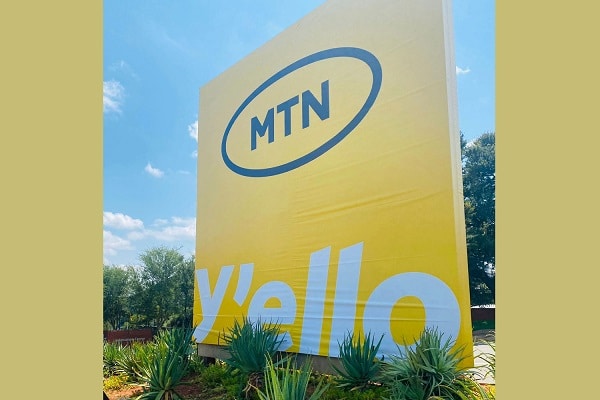Ẹ ǹ lẹ́ oo,
Victoria from Techpoint here,
Here’s what I’ve got for you today:
- MTN Cameroon wins as court lifts bank acc0unt freeze
- The expansion dynamics of African startups
- A $100M merger to tackle global hearing loss
MTN Cameroon wins as court lifts bank acc0unt freeze

MTN Cameroon just scored a big win in court! After nearly three years, the Littoral Court of Appeal in Douala finally lifted a garnishee order that had frozen its bank acc0unts, all thanks to a legal battle with the Bestinver group of companies. MTN announced on Tuesday that the court ruled in its favour back in February, with the final order arriving in March 2025.
For context, MTN wasn’t even involved in the issue that led to the freeze. The whole thing started when Ahmadou Baba Danpullo, a well-connected businessman and owner of Bestinver, got into a financial dispute with First National Bank (FNB) South Africa. After FNB liquidated his real estate assets over a R507 million debt, Danpullo took legal action in Cameroon, claiming MTN had ties to FNB through the Public Investment Corporation (PIC). That led to his companies seizing MTN’s acc0unts, which held over $23 million.
MTN was not having it. The telco repeatedly argued that it had zero connection to Bestinver, Danpullo, or FNB. Then-CEO Mitwa Ng’ambi called the move “fraudulent and unacceptable”, saying it was just an attempt to access money that didn’t belong to them. MTN stuck to its guns, and now, the court has ruled in its favour, restoring access to its funds.
With this legal headache finally over, MTN is looking ahead. The company recently committed a massive $225 million to boost its operations in Cameroon. Last year, Group CEO Ralph Mupita met with Cameroon’s Prime Minister during the BRICS Summit in South Africa to discuss expansion plans.
MTN also has big plans for the future, from rolling out 5G to improving rural connectivity. The goal? Fairer access to the Internet for more Cameroonians. With this court battle behind them, they can fully focus on making it happen.For now, MTN is celebrating this major win and thanking its customers and partners for standing by them.
The expansion dynamics of African startups

Every startup dreams of going big, whether it’s expanding to a new city, region, or even going global. Expansion proves that a business is scalable and is solving a real problem. But here’s the thing: it’s not just about deciding to expand. Startups have to think about the right market, potential risks, and sometimes whether expansion is even the right move in the first place.
Techpoint Africa news delivered to your inbox
Get the free daily newsletter read by industry experts. 100% free. Unsubscribe anytime.
While some startups, like PiggyVest, have thrived in just one market for years, others feel the pressure to expand, especially if they’re backed by venture capital. According to Ameya Upadhyay from Flourish Ventures, startups almost have no choice but to expand because most African markets aren’t big enough to sustain the kind of growth VC investors expect.
But Bunmi Akinyemiju, CEO of Venture Garden Group, thinks differently. He believes that before expanding, founders should first dominate their local market and in most cases, that’s the smarter move.
Look at Twiga Foods, a Kenyan B2B startup. In 2021, they had big plans to enter Nigeria but later pulled back to focus on Kenya instead. Meanwhile, companies like Flutterwave have taken a different route, scaling into over 30 countries across Africa and beyond. These two cases show how expansion isn’t one-size-fits-all — some startups grow fast, while others prefer to double down at home first.
The big question is: where should startups expand to? Surprisingly, the next best market isn’t always the country next door. Founders often assume that regional expansion is the easiest move, but in reality, differences in regulations, infrastructure, and consumer behaviour can make neighbouring markets even tougher to crack.
So, what’s the best approach? Should startups scale fast or play it safe? And if they do expand, where should they go? For more insights, read Sarah’s story.
A $100M merger to tackle global hearing loss

Eargo and South Africa’s hearX just merged to create LXE Hearing, and they’re kicking things off with a cool $100 million from Patient Square Capital. This merger is all about making high-quality hearing aids more aff0rdable and accessible, combining the best of both companies to tackle hearing loss on a global scale.
If you don’t know hearX, they’re the brains behind Lexie, a hearing aid brand that’s all about top quality at a price people can aff0rd. Founded in 2015 by Nic Klopper, the company started with a mission to make hearing tests and treatment available through smartphones, cutting out the usual expensive and complicated process.
Eargo, on the other hand, made a name for itself in the US with sleek, almost invisible hearing aids sold directly to customers. Now, with both companies joining forces under LXE Hearing, they’re bringing together cutting-edge tech, remote care, and massive distribution power to help millions worldwide.
“The whole point of this merger is to bring hearing solutions to everyone, everywhere,” says Klopper, who will lead LXE Hearing. With Eargo’s slick design and customer-first approach mixed with hearX’s Bose-powered tech and award-winning mobile app, they’re planning to shake up the hearing aid industry like never before.
LXE Hearing will keep selling both the Lexie B2 Plus hearing aids (built with Bose) and Eargo’s own range of devices. The merger is also expected to streamline the whole customer experience, improve efficiency, and help them grow in new and existing markets.
For Africa’s healthtech space, this isn’t just another business deal, it’s proof that African startups can go global and dominate specialised markets. hearX started as a university project and is now leading a global movement in hearing health. It’s a reminder that homegrown innovation, when done right, can change the world.
In case you missed them
- Equinix boosts Nigeria’s digital economy with new Lagos data centre
- Flutterwave takes Send App to Ghana
What I’m watching
- Former CIA agent: The truth about manipulation | Andrew Bustamante
- When did humans start getting divorced? – Rod Phillips
Opportunities
- Want to exhibit or attend the Lagos Startup Expo in June? Visit this website here.
- Want to connect with professionals in tech sales and partnerships to exchange ideas and explore how revenue growth can scale Africa’s tech ecosystem? Join Tech Sales Connect 2025 on April 19th at Gomycode, Lagos. Register here.
- Kuda is recruiting for several roles. Apply here.
- Glovo is looking to fill several positions. Apply here.
- Building a startup can feel isolating, but with Equity Merchants CommunityConnect, you can network with fellow founders, experts, and investors, gaining valuable insights and exclusive resources to help you grow your business. Click here to join.
- SheCode is hiring a design lead. Apply here.
- Uber is looking for a Country Manager in Nigeria. Apply here.
- Help us make Techpoint better for you! Your feedback shapes what comes next (your responses may potentially save my job. A bit dramatic, but still). It will only take 30 seconds to tell us what works and what doesn’t. Fill it here.
- To pitch your startup or product to a live audience, check out this link.
- Have any fresh products you’d like us to start selling? Check out this link here.
- Flutterwave is hiring to fill in several positions. Apply here.
- OPay is looking for a State Manager. Apply here.
- Interswitch is hiring a Senior Software Developer. Apply here.
- Paystack is hiring for several roles. Apply here.
- Moniepoint is hiring for several roles. Apply here.
- Follow Techpoint Africa’s WhatsApp channel to stay on top of the latest trends and news in the African tech space here.
Have a superb Thursday!
Victoria Fakiya for Techpoint Africa.
